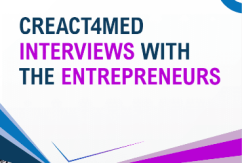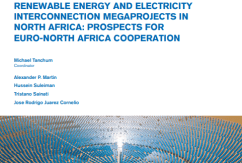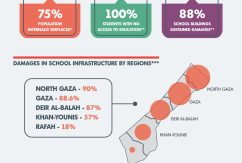Women entrepreneur stands tall in the face of Lebanon’s woes
Yusr Sabra is part of a group of 18 Lebanese women entrepreneurs who have been harnessing the opportunities of an economic empowerment programme to keep innovating in the midst of Lebanon’s crisis. Through grants from the European Bank for Reconstruction and Development (EBRD) and the support of the EU-funded Women Economic Empowerment for Lebanon project (WEEL), her logistics and services business -Wakilni- is thriving.
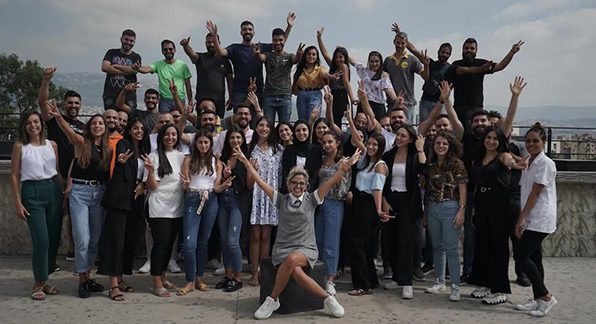
Since the onset of the national crisis almost four years ago, Yusr Sabra has been feeling anxious “all the time”. “After the COVID-19 pandemic, the explosion and the earthquake, I am always on my toes, asking myself ‘what is going to happen next?!’.”
And who could blame her? According to the World Bank, Lebanon’s economic crisis was deemed “one of the three most severe crises to occur anywhere since the mid-19th century”. After 25 years as an upper-middle-income economy, beleaguered Lebanon dramatically dropped to the ranks of a lower-middle-income nation in 2022.
Nevertheless, the energetic young mother, whose name translates to “do things with ease”, still keeps a bright smile and a lot of energy, running around and checking on her 190 employees across the different storage units of Wakilni.
A basic formula: turning market gaps into business opportunities
Yusr founded her company almost ten years ago, when Lebanon’s economy was still flourishing. “I had noticed a huge gap in the market of non-technical, concierge-like services,” she recalls.
“We started with expats who often needed their accommodation looked after while they were away, or citizens who wanted their administrative tasks taken care of. Then we quickly turned to the expanding sector of e-commerce, which was witnessing a steady growth in Small and Medium-Sized Enterprises (SMEs).”
When the market got up to speed, Wakilni already had a considerable advantage on its competitors: trust. “Both our clients and workers had seen how we were working and how dedicated we were to the human side of the business,” Yusr remembers, stressing “for us, soft skills and values matter more than university degrees or connections. Human resources are not just a support function for us but a driver for our company.”
The entrepreneur prides herself on seeing 40% of Waklini’s management positions occupied by employees who have gradually climbed the company’s ladder. For example, one driver has now risen to the rank of Operations Manager.
Driven by its ethics, Wakilni made sure to put its resources at the service of the Lebanese people when the revolution erupted in 2019. “We were delivering to the demonstration areas, making pick-ups, storing items, basically everything that we used to do, but for the benefit of the community.”
“The country had completely stopped. So we were actually providing for what local infrastructure was failing to and, as such, making our small contribution to the revolution,” Yusr explains.
This earned the small company a great deal of popularity and recognition from the public, while also encouraging other local delivery companies to follow suit.
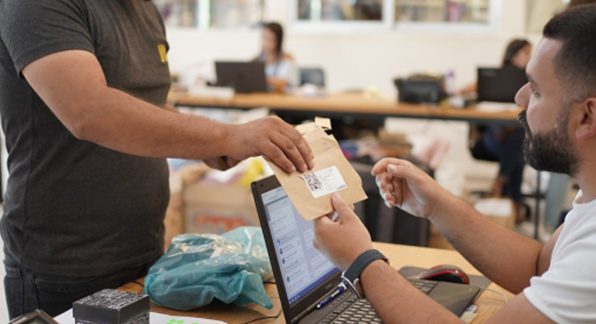

Resiliency in action: getting back up against all odds
Despite this newfound popularity, the company faced some financial struggles, especially since “Wakilni was not a typical start-up,” stresses Yusr. “We did not really fit the standard model that appeals to investors.”
The team therefore decided to rely on what they knew best: their community. Full of hope, they launched a crowdfunding campaign, featuring a video appealing for donations. “To me, it was really about the 130 families relying on the monthly earnings of our employees. But, whilst we hoped for 50,000 dollars, we only got 5,” she remembers.
The silver lining in all this? The video caught the eye of two angel investors, who injected 650,000 dollars into the company. Their boat was afloat again. Little did they know that hardships were yet to come, in the form of the COVID-19 pandemic, quickly followed by the Beirut explosion.
“Our main location was located very close to the port. Half of our offices were completely destroyed. That day, I have to admit I was done, I just did not have the strength to get out of bed,” Yusr remembers. But once again, the human bonds she so cherishes got her back up, as her team slowly started to pick up rubbles and rebuild shelves. Soon enough, they were back on their feet and Wakilni was up and running again.
This is what motivated her to start “The Extra Mile Fund”, a donation system that uses a small percentage of each delivery revenue to support members of the Wakilni community. By providing them access to needed services like online exposure, marketing or legal counselling for free, Wakilni seeks to help these people reboot their businesses amidst the protracted crisis.
“I was inspired by my experiences with programmes like the EU-funded Women Economic Empowerment for Lebanon project (WEEL) and the European Bank for Reconstruction and Development, which both supported me in my times of need,” explains Yusr.
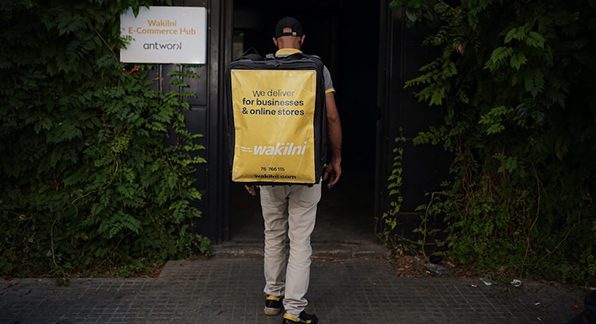

‘Because greatness just needs a little bit of support’
Started at the dawn of the revolution in October 2019, WEEL aims at supporting women-owned and women-led businesses by providing them with grants ranging from 15,000 to 50,000 euros, explains Zena Audi, Deputy Project Manager at EU4WE, the umbrella programme for WEEL.
“We targeted 12 MSMEs and 6 start-ups, which really displayed a potential to thrive but still needed a little push to expand, export or grow online exposure,” she continues. Implemented by Expertise France through the local incubator Berytech, WEEL helps cover investments, expenditures and technical assistance for these 18 companies.
“I can confidently say that these 40,000 euros from WEEL were one of the most beneficial grants I have ever received. It did not just help keep us afloat: it propelled us into a whole new level,” asserts Yusr.
With the grant, the team started by installing solar panels in their main office in Tripoli, in order to cope with Lebanon’s ongoing energy crisis and soaring gas prices. They then developed an online marketplace to offer seamless connection between businesses and clients. Finally, they drafted a franchising toolkit, as the stepping stone to their export process towards Egypt and Iraq.
“We just gained so much from this programme it is hard to put it into words. For example, they were very thorough on the reporting part and we did not see why at the time but now we use it as a comparative strength in our pitches to investors,”
“This is thanks to programmes like EU4WE that small businesses, which are the heartbeat of the city and the economy, can continue to exist,” Yusr insists, noting that connections with other entrepreneurs is key in achieving progress. As a matter of fact, she is currently rallying fellow companies to pressure the government to better regulate the delivery industry, which suffers from poor infrastructure, lack of proper insurance and lack of labour rights.
“Despite the challenges, we will always have each other to push through!” concludes Yusr.
The project
WOMEN ECONOMIC EMPOWERMENT FOR LEBANON PROJECT (WEEL) aims at Supporting Women-Owned And Women-Led Businesses In Lebanon by providing between 8 and 20 MSMEs and startups with grants from 15,000 to 50,000 euros to be used for expending investments, covering expenditures and getting technical assistance. It is a component of the umbrella programme, the European Union for Women’s Empowerment (EU4WE).
About the programme
EU4WE was launched by the European Union in October 2019 for a period of 42 months.
Implemented by Expertise France, EU4WE aims at promoting full and unconditional equality between men and women in Lebanon. The specific purpose of EU4WE is to reduce gender-based violence through women’s empowerment and enhance existing institutional mechanisms working towards gender equality.








